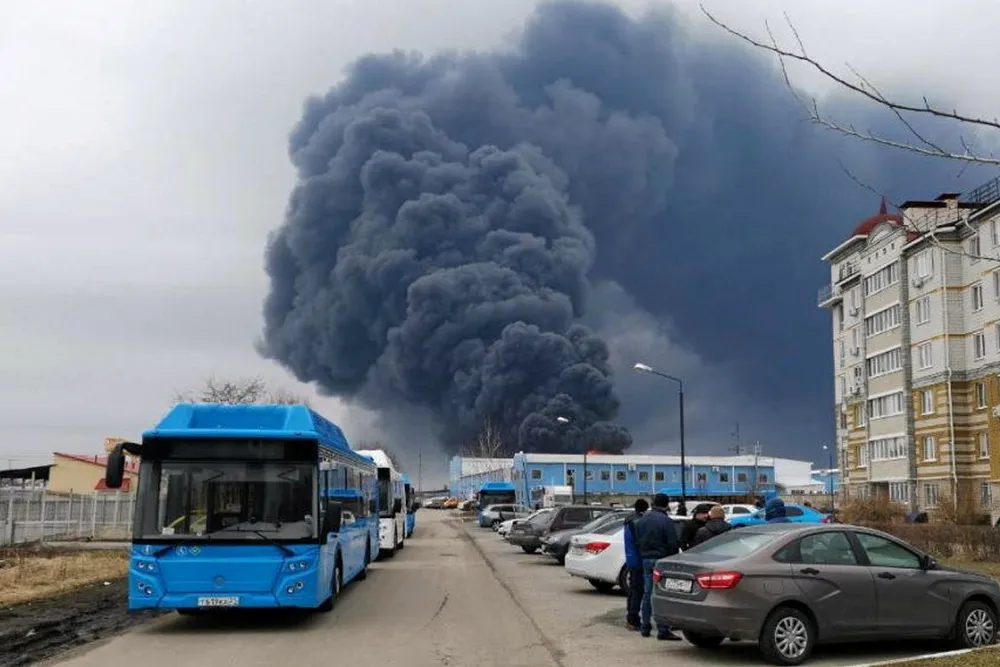Russian fuel depot in flames as attacks switch to energy installations
Helicopters destroy major fuel facility in Belgorod two days after a shell hits a high-pressure gas trunkline across the border near Ukrainian city of Kharkiv

Helicopters destroy major fuel facility in Belgorod two days after a shell hits a high-pressure gas trunkline across the border near Ukrainian city of Kharkiv
